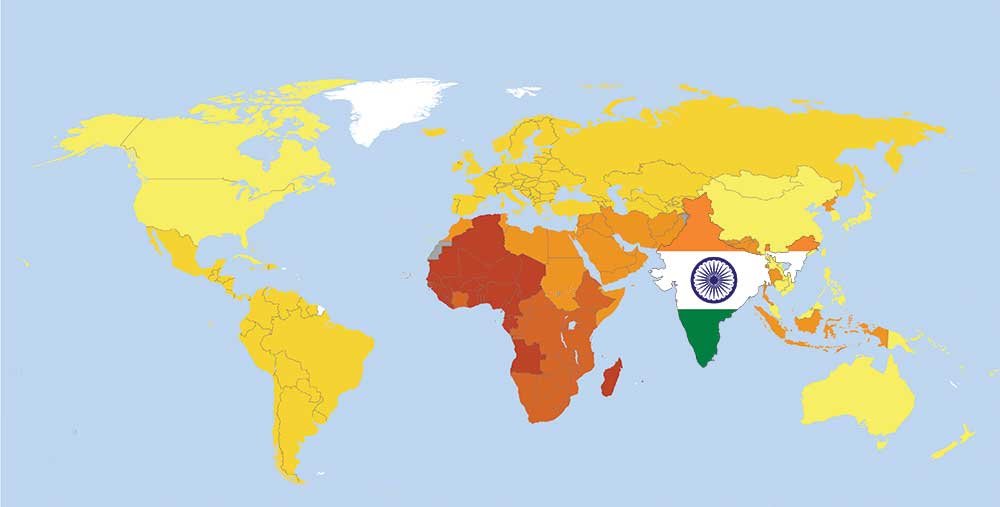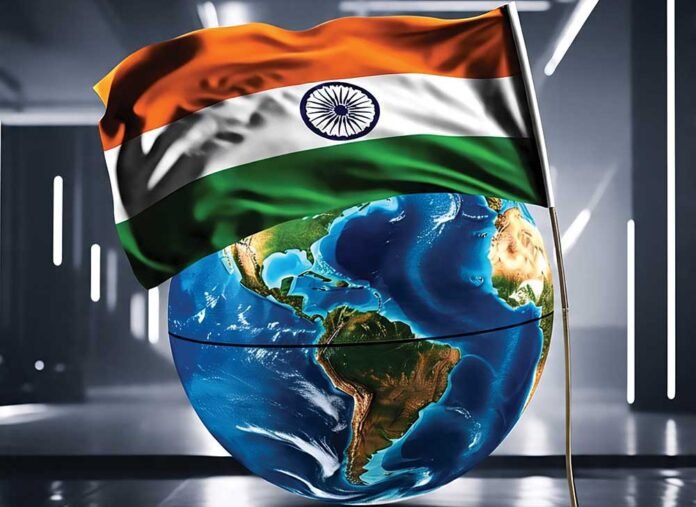Change is the order of life. German philosopher Hegel, who created the theory of dialectics, highlighted that change is of paramount importance for the creation of both the thesis and the antithesis, with the friction generated by the resultant clash resulting in the creation of a new idea – the thesis, this clash continues till a perfectly new idea is developed.
Something of that sort occurs in the realm of international politics, especially for an aspiring great power like India. In the past one year, a lot of changes have taken place around the world, particularly in India’s neighbourhood. Given the uncertain nature of changes, New Delhi had to adapt itself, albeit based not on the old playbook, but on a new playbook with completely new rules of engagement.
A Bolder India
The India of the 21st century is a bold and strong state actor. Boasting the world’s fourth-largest economy and one of the strongest armed forces in the world, New Delhi means business. While India advocates the cause of peace and stability both regionally and internationally, any attempt to undermine the sovereignty of India would be met with a brutal and swift response.
This was on full display in the aftermath of the April 22 terror attack in Pahalgam, Kashmir. With New Delhi tightening the noose around Islamabad diplomatically and economically, it ultimately culminated in an audacious military operation called Operation Sindoor. Nine targets deep inside Pakistan Occupied Kashmir and Pakistan were struck in airstrikes, carried out by the state of the art missiles by Indian fighter aircraft. All targets were neutralised with clinical efficiency.
While India responded militarily to the affront to its sovereignty, New Delhi intellectually dismantled Pakistan’s lies of the two-nation theory peddled by the now ‘Field Marshal’ of the Pakistani armed forces Asim Munir by making two career woman officers, one belonging to the army and the other to the air force, the face of daily press briefings. What was highly noticeable was the religious harmony this representation carried.
India, in Prime Minister Narendra Modi’s address to the nation, made it very clear to our nemesis Pakistan that its use of nuclear blackmail to ‘bleed India by a thousand cuts’ would no longer work. New Delhi also elaborated that any further terror attack on its soil would be taken as an act of war with India responding proportionately.
The 21st century India is a bold and strong state actor with the world’s fourth-largest economy and one of the strongest armed forces. While India advocates peace and stability both regionally and internationally, any attempt to undermine its sovereignty would be met with a brutal and swift response
Hypocrisy of the West
While the countries in the Euro-Atlantic region have emerged as one of the most important sources of economic, political and security engagement with New Delhi, what acts as a thorny issue in ties is the doublespeak of the Western powers.
Upon the outbreak of the Russia-Ukraine conflict, the West invested immense diplomatic capital in India in the process of convincing New Delhi to join the Western bandwagon in condemning Russia despite knowing that Russia is an important strategic partner for India; gaining little support from India in the process, the West started subtly condemning India. The threat of sanctions against Indian purchases of Russian crude oil and Russian weapons platforms, both on existing deals and new ones are cases in point.

In the aftermath of Operation Sindoor followed by drone attacks carried out by Pakistan and retaliatory Indian strikes, the West urged caution. What makes this doublespeak all the more glaring is the fact that the West has been complicit in arming and providing ample opportunities to the Pakistani pseudo-republic to carry out its nefarious designs against India. The IMF loan provided to Pakistan is an excellent example.
The double game tactics of the West were exposed by the learned external affairs minister of India, Dr S Jaishankar, when he highlighted that while India expects the world to be united in the fight against terrorism, he expected countries to be partners, not preachers, taking in the process, an indirect jibe at Europe.
A New Playbook
In international relations, every major power has a distinct style of pursuing its national interests based on the social, cultural and political specificities of its internal and external conditions. The situation is no different for India.
Given the multiplicity of security issues that New Delhi is facing, India has formulated new rules of engagement. These involve treating territorial disputes strictly on a bilateral basis. For instance, when US President Donald Trump claimed that it was the US who successfully stopped the skirmish between India and Pakistan through mediation, New Delhi rejected the insinuation.
India highlighted that the issue of Kashmir is a strictly bilateral matter that would be dealt with between the two neighbours; there is no scope for international mediation.
Another key part of this new playbook is the idea that in order to protect its national security and territorial sovereignty, India will not hesitate to take steps that may possess the potential to upset the international community, the kinetic response to Pakistani terrorism is a case in point. Further, the gradual improvement of ties between India and the Taliban regime in Afghanistan, which was until a few years ago, designated individuals with a distinct anti-India approach in their first stint in power are now gradually warming up to India to balance Pakistan.
Therefore, following the Kautilyan dictums of statecraft and diplomacy is of paramount importance for India.
Prime Minister Modi’s address to the nation made it clear to Pakistan that its use of nuclear blackmail to ‘bleed India by a thousand cuts’ will no longer work
Economics plays a key role in shaping the relationship between state actors. It is a key part of New Delhi’s new playbook. As India is aggressively negotiating FTAs with different countries and trading blocs around the world, it is doing so keeping in mind the need to guard its national interests. This is clearly evident from the recent Free Trade Agreement India signed with the UK which saw the dairy sector, the source of livelihood of millions of farmers and the backbone of the MSME sector in India being excluded from the deal.
India is likely to follow a similar approach with the other negotiating parties when it comes to sensitive sectors of its economy.
A key question arises in this context – how will India convince the world about the rules of engagement of its new playbook?

Firstly, the statistics speak for themselves; India is the world’s fastest-growing major economy and one of the biggest markets and consumers of important commodities and goods. International politics is a two-way street, just like India needs the world for its prosperity; the world needs India to act as an important stakeholder in global matters – from economic development to climate change.
Secondly, India’s soft power, which is the product of its 5000-year-old civilisational heritage, exerts a positive influence in perception building vis-à-vis other countries, allowing India to build on it.
However, being complicit is not an option. New Delhi is rightly aware of that and has dispatched several inter-party delegations to over 30 countries to disseminate India’s message that India stands for zero tolerance to terrorism.
Hence, it is necessary for India to continue building strategic capital across the world through its deft diplomacy while ensuring the protection of its sovereignty against all threats.
–The writer is currently working as a Research Associate at Defence Research and Studies (dras.in) and is a columnist. The views expressed are personal and do not necessarily reflect the views of Raksha Anirveda






